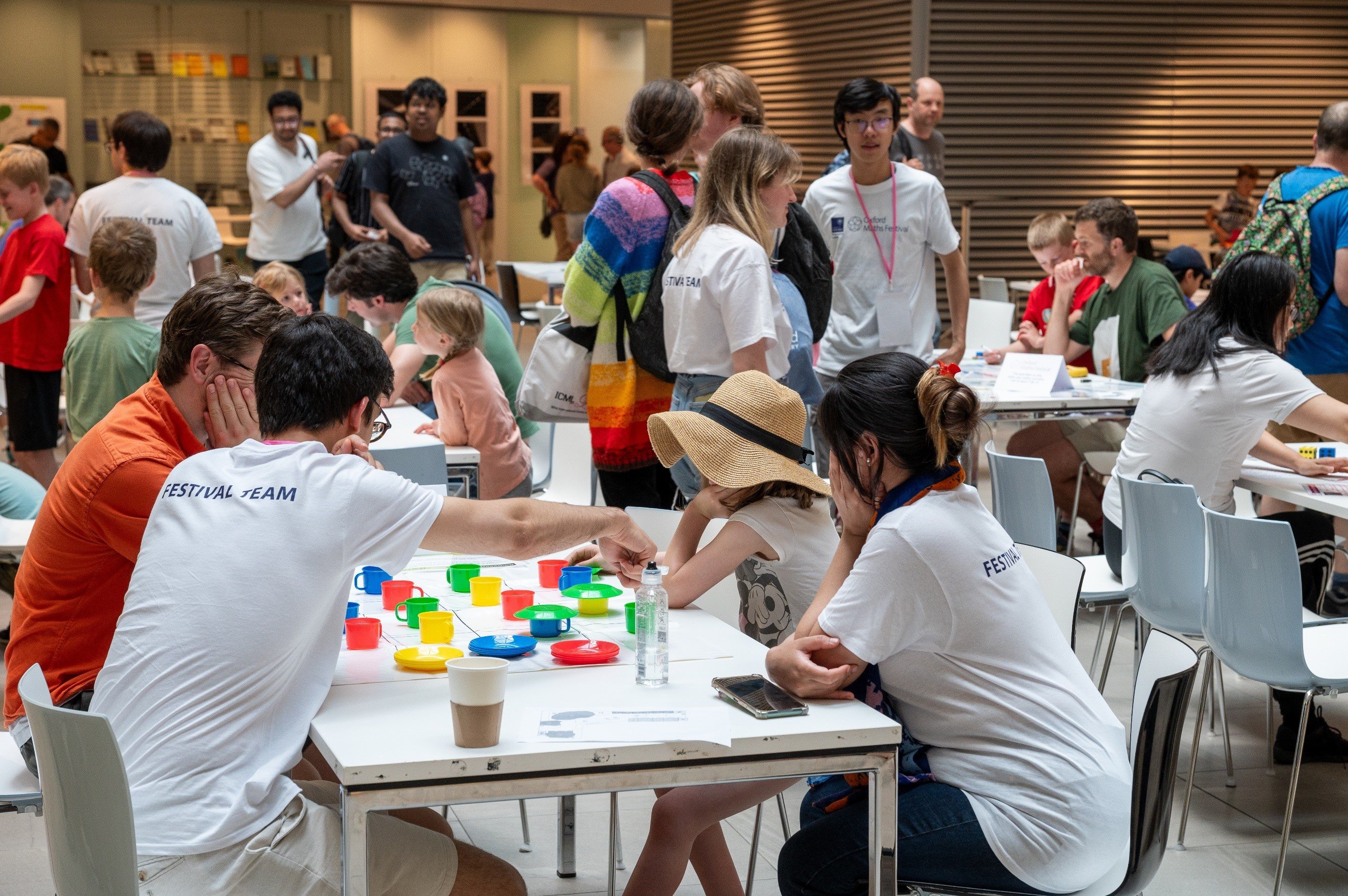 The final Hilary Term Fridays@2 is in L1 today: Teaching Mathematics as a Career (https://www.maths.ox.ac.uk/node/70565)
The final Hilary Term Fridays@2 is in L1 today: Teaching Mathematics as a Career (https://www.maths.ox.ac.uk/node/70565)
Don Van Vliet, aka Captain Beefheart, was idiosyncratic to say the least, blending a range of often experiemental musical styles over 13 albums before giving it all up and devoting himself to abstract expressionist painting (see earlier item) which, to be fair, made him far more money.
Beefheart can be very inaccessible, at least on the first 45 hearings. But fear not, this is him at his most accessible.
16:00
Geometry and incompleteness of G_2-moduli spaces
Abstract
Riemannian manifolds with holonomy G_2 form an exceptional class of Ricci-flat manifolds occurring only in dimension 7. In the compact setting, their moduli spaces are known to be smooth (unobstructed), finite-dimensional, and to carry a natural Riemannian structure induced by the L^2-metric; but besides this very little is known about the global properties of G_2-moduli spaces. In this talk, I will review the basics of G_2-geometry and present new results concerning the distance theory and the geometry of the moduli spaces.
16:00
Mordell–Weil groups of elliptic curves — beyond ranks
Abstract
If $E/\mathbb{Q}$ is an elliptic curve, and $F/\mathbb{Q}$ is a finite Galois extension, then $E(F)$ is not merely a finitely generated abelian group, but also a Galois module. If we fix a finite group $G$, and let $F$ vary over all $G$-extensions, then what can we say about the statistical behaviour of $E(F)$ as a $\mathbb{Z}[G]$-module? In this talk I will report on joint work with Adam Morgan, in which we investigate the simplest non-trivial special case of this very general question. Our work has surprising connections to questions about frequency of failure of the Hasse principle for genus 1 hyperelliptic curves, and to work of Heath-Brown on 2-Selmer group distributions in quadratic twist families.


 The Oxford Maths Festival is returning for 2025!
The Oxford Maths Festival is returning for 2025!
 A reminder that prelims corner is taking place next Monday at 11am in the South Mezzanine! Feel free to stop by and ask Mario any questions you may have relating to your study, problem sheets or student life in general.
A reminder that prelims corner is taking place next Monday at 11am in the South Mezzanine! Feel free to stop by and ask Mario any questions you may have relating to your study, problem sheets or student life in general.